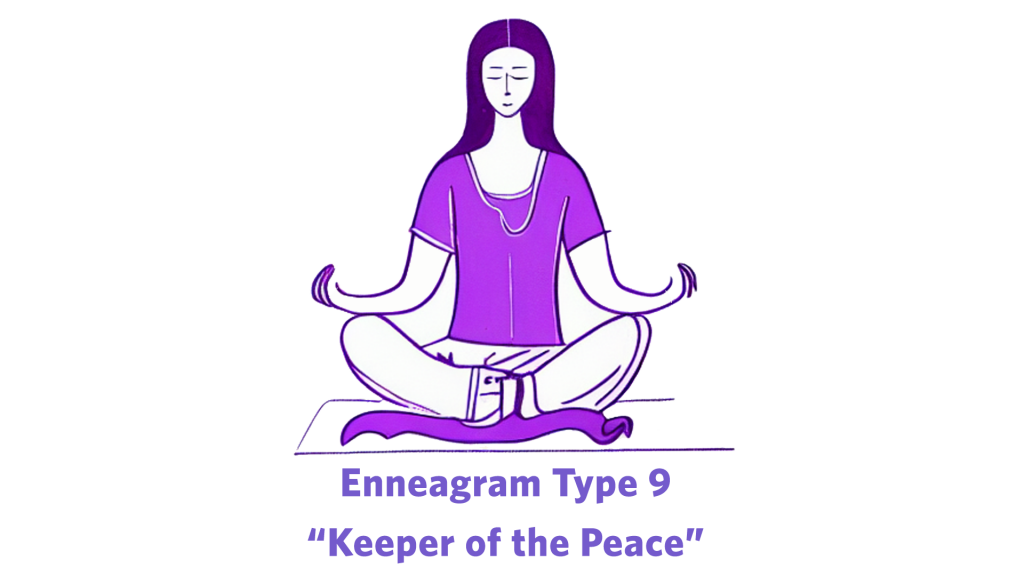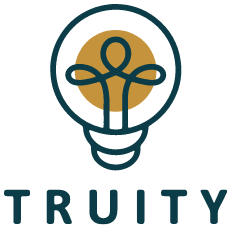In general, each Enneagram type has a basic desire or need that they are attempting to fulfill and protect.
These enneagram harmonic groups are grouped based on their needs in the Centers of Intelligence or the primary triads comprising the Heart, Head and Gut.
When we want something in life and don’t get it, we are disappointed, frustrated and even angry (which may manifest as moments of stomping around or sulking in the corner).
Enneagram Harmonic Groups (and we’re not talking about musical harmonic groups here) are essentially 3 groups of Enneagrams that are organized according to the manner in which each personality copes with loss, disappointments, difficulties and conflict.
And, if you want to know all about Harmonic Groups Enneagrams or Harmonic Triads, read the article, for a complete rundown.
What Are Harmonic Groups Enneagrams?
Enneagram harmonic groups or Enneagram triads group the 9 personality types into 3 groups of 3 i.e., the Positive Outlook Group, the Competency Group and the Reactive Group.
The Positive Outlook group contains personality types 2,7 and 9, the Competency group comprises personality types 1,3 and 5 and the Reactive Group consists of personality types 4,6 and 8.
All the 3 personality types in a specific group share things in common and knowing the group that you belong to can help to understand how you handle conflict, disappointment and loss and how you respond when you don’t get what you really want.
Positive Outlook Group

Comprising the Enneagram types 2,7 and 9 or The Wingman, The Aficionado and The Keeper of the Peace, each type belonging to the Positive Outlook Group has a positive outlook.
They tend to look at the brighter side of things when they are confronted with conflict and/or disappointment of not getting what they want. All three types react to the negative situation differently but are positive in their own way.
Type 2s or The Wingman
The Wingman wants to feel loved at all times. Their emphasis is on their self-image and wants to project a positive one at all times. They tend to sweep the negatives and disappointments in their own lives under the carpet and focus on other people’s needs.
They want others to view them as good, caring people and this makes them feel good about themselves. But the danger of this is that type 2s are so busy focusing on others that they end up neglecting their own needs and desires.
Type 7s or The Aficionado
Type 7s want to be content and satisfied at all times. The Aficionado lives by the tenet that “the problem is not applicable to me.” They tend to hide the negative aspects by focusing on the exciting, fun and positive things in their life.
The Aficionado is affected deeply by other people’s pain but they prefer not to view their own contribution to the suffering and pain they are causing in their own and other people’s lives.
Type 9s or The Keeper of the Peace

Now who doesn’t want peace in their lives (duh!) and it’s no surprise that type 9s are constantly striving for peace of mind. Not The Keeper of the Peace for nothing, type 9s hate uncomfortable and negative feelings.
They run away from conflicts and ignore problems. They don’t like to see bad things in people around them and themselves.
Type 9s are concerned about their own needs, as well as the needs of others and when one of them is not fulfilled, The Keeper of the Peace tends to become overwhelmed.
The Competency Group
The Competency Group comprises the Enneagram type 1 or The Advocate, type 3 or The Pioneer and type 5 or The Scholar.
It’s not a surprise that the personality types belonging to this Enneagram harmonic group focus on competency, especially when they are faced with disappointment and things don’t work out as they want them to.
But each type manages their feelings in their own different but competent way. They tend to push their personal feelings aside and focus on problem solving by being emotionally objective.
Type 1s or The Advocate

The Advocate’s approach to resolving difficult situations is to find the right answer to things by using logic and common sense.
Always trying to be the adult and figuring things out, the type 1 Enneagram personality tries to understand what went wrong when they don’t get what they want in order to set the situation right.
If they strongly believe that certain rules can help to achieve something, they will follow them to a “T” and expect that others should do the same. And, if others fail to follow the system (God bless them!) the type 1 personality can get quite upset.
But since The Advocate is generally known to be law abiding and to follow the rules, if they do bend the rules a bit, they are rarely challenged by others.
Type 3 or The Pioneer
Wanting to feel worthy and valuable to others, The Pioneer’s or type 3’s focus on being competent is by being efficient and exceptional in everything they do.
When they are faced with any problems, type 3s work towards resolving them logically and if the rules don’t really serve them, they don’t even mind bending the rules to achieve what they want.
If the type 3s can manage to remain focused on fixing the problems, they will not have the time to dwell on the negative emotions.
When The Pioneer finds a solution to resolve the issue successfully, then they simply add it to the list of their achievements and conveniently overlook the emotions that caused the problems.
Type 5 or The Scholar

Always logical and analytical, the Enneagram type 5 or The Scholar wants to be known for being proficient, competent and having all the information. They believe that by keeping their emotions aside and using their brain, they can solve any problem.
If they don’t know anything about the matter, then the always-ready-to-learn Scholar will gain all the knowledge they can about the topic, so that they can be confident that the solution they have found for the problem is the right one.
Type 5s hate being limited by rules and are happy to work outside the boundaries to achieve the outcome they desire.
Reactive Group
Also sometimes known as the Intensity group or Emotional Realness group, the Reactive Group consists of the Enneagram types 4, 6 and 8 or the Flying Solo, The Dependable and The Rival.
These types generally react with intense and strong reactions when they are faced with disappointment and when things do not go their way. And, as much as they have strong opinions and feelings, they also want the others around them to feel the same way.
Type 4 or Flying Solo
The lone ranger, type 4s reacts to difficult situations or conflicts by withdrawing and looking for a supporter who understands and empathizes with them.
They are not secretive about their feelings but look for supporters who can see their pain, identify it and help them deal with it.
Their greatest fear of Flying Solo is being abandoned and that they will not have the support they need. 4s generally play hard to get and this is their way of keeping others’ interest in them alive.
Type 6 or The Dependable
A confused bundle, the type 6 wants security and support and someone they can depend on but at the same time, they want to be the strong one too. They generally react by evaluating situations and people.
The Dependable hates the idea of being too dependent on others and being abandoned without support. They are extremely uncomfortable in situations that expose their anxieties and often wonder if they will be able to handle their emotions.
Some type 6s will react defensively, while others will simply withdraw and look for a supporter who will fight on their behalf.
Type 8 or The Rival

Always ready to tell the world how angry they are, type 8s or The Rival are powder kegs waiting to explode.
They react to adverse situations and conflicts by expressing their anger and feelings openly and they have an innate need for others to recognize the injustice in a situation.
Wanting to protect themselves and be in control, The Rival hates the idea of being vulnerable and dominated by others.
They believe in being self-reliant and independent. Type 8s prefer to take control of any uncomfortable situation so that the outcome is something that they can control.
Wrapping Up
In conclusion, the Enneagram harmonic groups comprise the 3 groups, the Positive Outlook group, the Competency Group and the Reactive Group.
And, people belonging to each of these groups have certain ways of handling conflicts, disappointments and other negative outcomes that are the opposite of what they want and desire.
The harmonic group enneagram is also another way that enables you to understand and identify yourself and the people you interact with so that your relationships are more harmonious and fulfilling.

